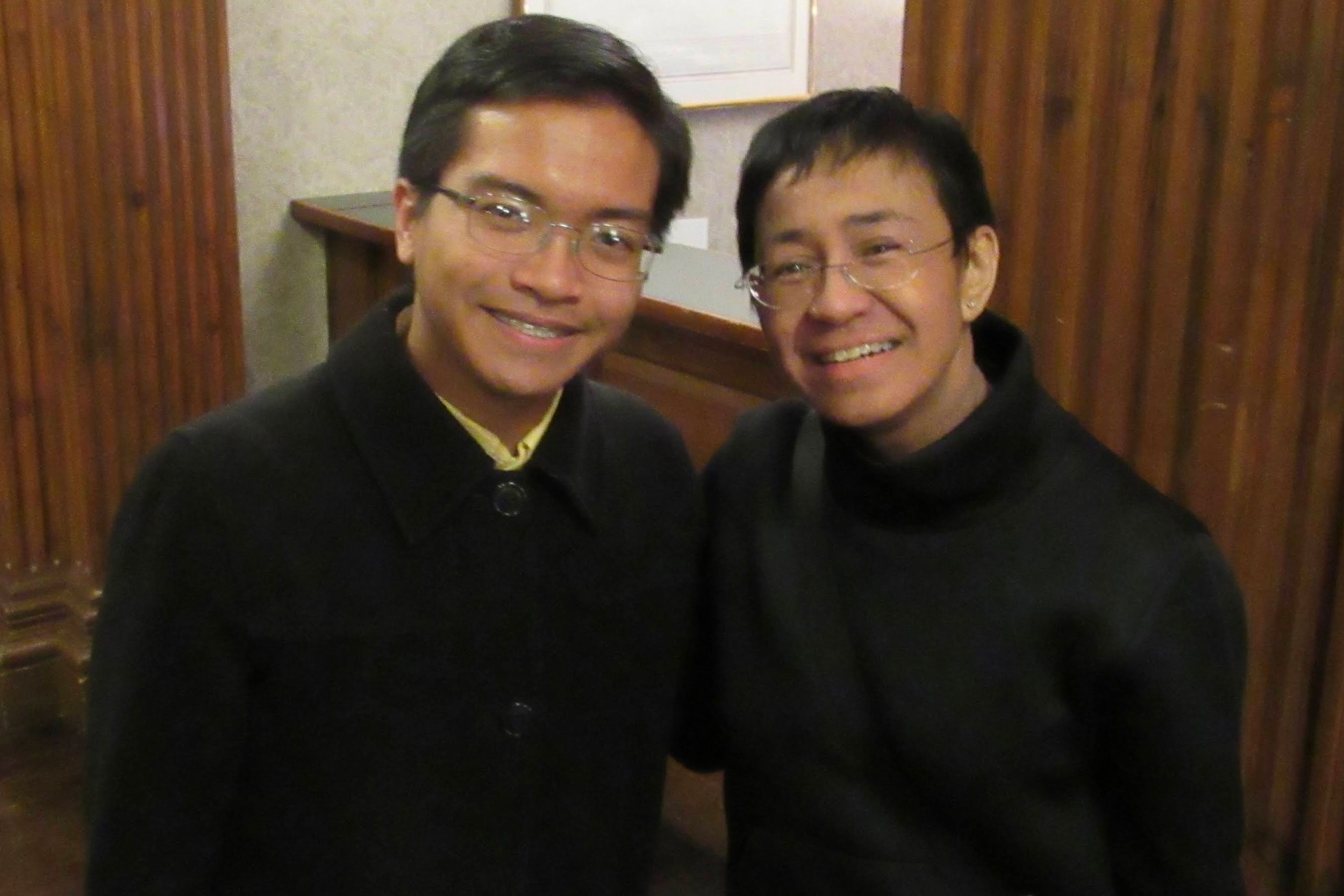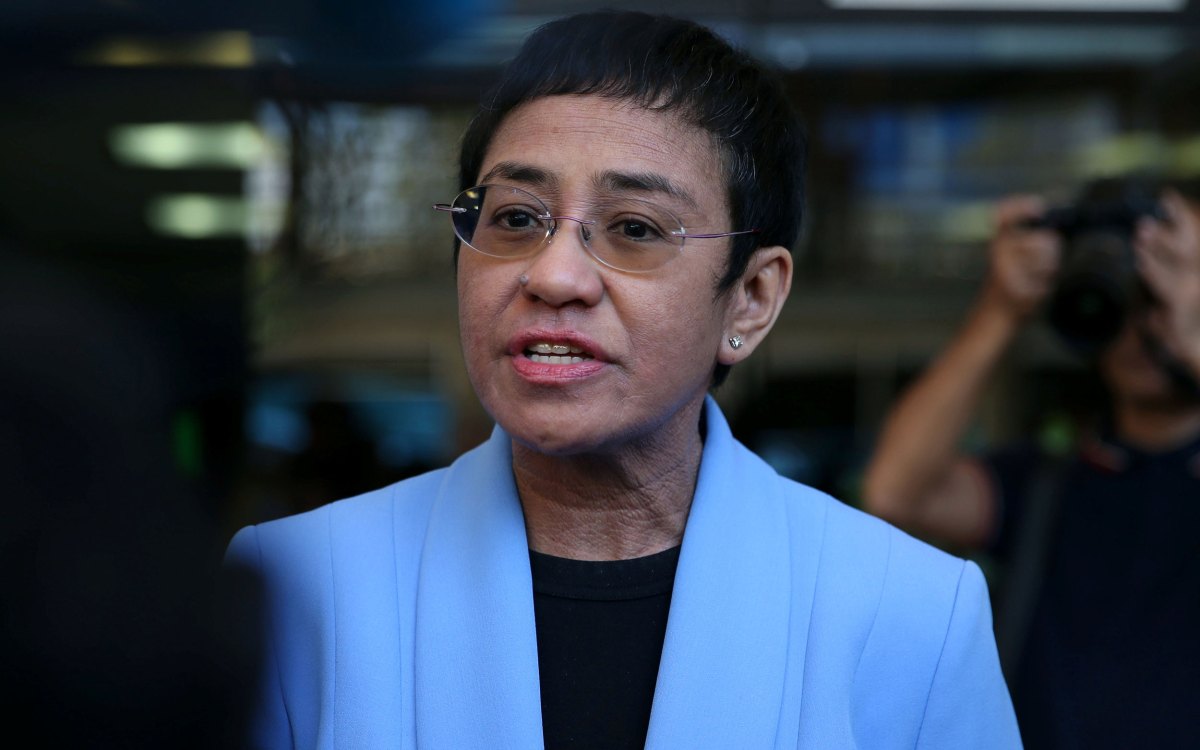
Jeromel Dela Rosa Lara ’23 met Maria Ressa at a 2020 event hosted by the Nieman Foundation for Journalism. On Oct. 15, Ressa won the 2021 Nobel Peace Prize.
Courtesy of Jeromel Dela Rosa Lara ’23
When your role model wins the Nobel Peace Prize
Like Maria Ressa, Jeromel Dela Rosa Lara ’23 emigrated from Philippines as child and is focused on giving voice to the unheard
Jeromel Dela Rosa Lara ’23 was thrilled to find out last week that the journalist Maria Ressa, one of his personal heroes, had received the 2021 Nobel Peace Prize along with Russian journalist Dmitry Muratov. Though she has won one of the world’s most esteemed prizes for her journalism and he is just beginning his career as a Cambridge livability and homelessness reporter at The Crimson, he identifies closely with the woman who has been an inspiration for his family for decades.
“Something that I really want to do is to do storytelling that amplifies the voices of community, especially people who have been sidelined, and I am very connected to the Philippines,” said Lara, who was born and partly raised there. “Watching journalists like Maria Ressa, who have exhibited so much courage — at a time when people are either stymied or would not necessarily be willing or comfortable speaking out, let alone writing — continue to write stories has been really inspirational.”
Ressa is the CEO of the Philippines-based digital media company Rappler, which focuses on investigative journalism and has published work on government corruption, extrajudicial killings, and misinformation in the Philippines, which has led to criminal charges and threats from President Rodrigo Duterte against Ressa and her staff.
“As a Filipino, this means a lot to me,” said Lara, who is pursuing a joint concentration in social anthropology and the comparative study of religion. “Things like this Nobel Prize represent this legacy in the Philippines of people having the courage to rise up.”
Lara also shares a strikingly similar early life path with Ressa, which has only deepened his admiration for her tenacity and perseverance.
Ressa was born in the Philippines and immigrated to the U.S. at age 10 before going on to study at Princeton. Lara was also born in the Philippines, arrived in the U.S. at 11, and started at Harvard in 2019. Ressa founded Rappler, which focuses on investigative journalism, in 2012, around the time Lara moved to the U.S. and started writing. This fall, Ressa is a Fall 2021 Joan Shorenstein Fellow and Hauser Leader at the Harvard Kennedy School. In addition to his Crimson reporting, Lara is the co-director of news for WHRB Harvard Radio Broadcasting. He also plans to write his senior thesis on caregiving and issues of migration, labor, culture, and spirituality in the Filipino diaspora.
Lara has followed Ressa’s career and considers Rappler his go-to news source for the Philippines. In his academic and journalistic endeavors, he said he tries to emulate Ressa’s drive to tell the truth and do so with courage. He even got to meet the Nobel laureate at a 2020 event hosted by the Nieman Foundation for Journalism and the Harvard University Asia Center.
“It gives me goosebumps just remembering it,” said Lara, a Cabot House resident. “Getting to meet her in person was so surreal. Maria Ressa is a household name in the Philippines, so I could tell my mother about it because she’s known about her for a long time.”
Lara hopes Ressa and Muratov’s Nobel win will motivate people to pay attention to global political issues and the journalists who bring them to light.
“Here in America and the Philippines, in a way we’ve taken journalism and the role of the press for granted, because we have so much access to information. But because of that, we don’t get to really appreciate and value the humans who are behind the stories, and the risks and courage it takes,” said Lara. “Now that we know Maria Ressa’s name and get a glimpse of the value of the work that she does, let’s take even a greater step and appreciate more of the people who are taking risks, putting themselves out there in any context to cover stories and to write about things that are going on in our society.”





